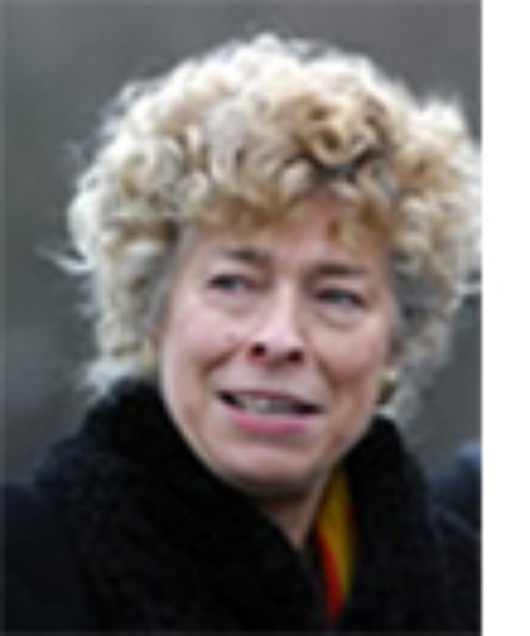East meets West at Gesine Schwan’s university
Published on
Translation by:
 claire mcbride
claire mcbride
Gesine Schwan fought for the reconciliation of East and West even before the EU existed. With this visionary from Frankfurt/Oder, Europe senses that something good is going to happen.
 In English, ‘Schwan’ means ‘swan’. Swans have always been important in European culture a symbol of purity, innocence and virginity, and in the Baroque period the pale swan-like colour of a woman was an unmistakeable sign of sublime beauty. Of course these times have now passed. Swans are now only fed breadcrumbs by children at remote city ponds, and now and again in German tabloids you can find an excited report about attacks on innocent pensioners by ‘black fighting swans’. The German language even uses the word swan to express feelings of disaster: ‘Mir schwant Übles’ is said if someone is pessimistic about the future.
In English, ‘Schwan’ means ‘swan’. Swans have always been important in European culture a symbol of purity, innocence and virginity, and in the Baroque period the pale swan-like colour of a woman was an unmistakeable sign of sublime beauty. Of course these times have now passed. Swans are now only fed breadcrumbs by children at remote city ponds, and now and again in German tabloids you can find an excited report about attacks on innocent pensioners by ‘black fighting swans’. The German language even uses the word swan to express feelings of disaster: ‘Mir schwant Übles’ is said if someone is pessimistic about the future.
However, since this Spring the swan’s image in Germany has definitely improved. Now it stands for hope and self-confidence thanks to an exceptionally successful woman who adds to ‘Schwan’ the unusual name Gesine. The 61-year-old president of the European University ‘Viadrina’ in Frankfurt/Oder has managed to incite enthusiasm among the German public. Schwan was put forward as the first female candidate for the German Presidency earlier this year and, although she didn’t win and despite the fact that women’s groups complained that she was merely a token candidate, her refreshing appearance on talk shows and countless newspaper interviews have been very popular with the public.
Superior and vivacious
This is how German philosopher Jürgen Habermas exuberantly praised her in ‘der Zeit’: ‘She fares brilliantly and makes an impression through her presence of mind, her superior knowledge and smooth arguments. Above all she has a convincing political temperament’. Perhaps this is why Schwan went down so well with a broad section of society. According to one of the surveys carried out by the opinion research institute ‘Emnid’ before the German Presidential elections, 40% of German citizens would have voted in a direct election for Gesine Schwan to be German President, compared with 38% who would have voted for her competitor Horst Köhler. In the end it was Köhler who won, but this is not necessarily a reflection on Schwan’s popularity as the President is elected not by the public but by a special federal assembly.
Born in 1943 Schwan progressed quickly in a scientific career. She is a Marx expert and nowadays occupies herself with questions of political culture. Previously she had strived for better relations with Poland and, to this end, learnt Polish as well as forming a relationship with the Polish underground movement, Solidarity, in the 1980s. Despite her apparently left-leaning tendencies, she adopted a conservative standpoint in the SPD which she joined in 1970. She was regarded as a member of Helmut Schmidt’s camp and, like him, she was for arms modernisation of NATO with medium range missiles. As she understood the situation in Eastern Europe very well, she vehemently supported the idea that the Communist Dictatorships in Eastern Europe should only be accommodated when they were willing to improve human rights in their countries. In a SPD magazine in 1983 she reproached former SPD leader Willy Brandt for ‘trivialising the difference between democracy and dictatorship’ and she relied on the Commission for fundamental values of the SPD. As a result, many on the party left at that time condemned her as a ‘black fighting swan’. Even after her nomination as presidential candidate she didn’t tow the line, taking up positions against the advice of the German Chancellors and elite universities in Germany and complaining about the tendency for the burdens of reform affecting the lower classes too severely.
More than rolling out dough
Above all else Gesine Schwan is a committed European. In 1999 she was asked to be president of the relatively new European University ‘Viadrina’, at which over 5000 students from 30 countries study, one third of whom are from Poland. She worked actively day after day for European Unity, a difficult task as it is hard to continually hold one’s own against the leading political classes in Europe. In her statements to Europe she didn’t succumb to the danger of filibustering. In an interview with the ‘Leipziger Zeitung’, she made it clear that Eastward expansion ‘isn’t just about rolling out dough’ but is about a ‘new creation’ in Europe and that she is in favour of letting the people vote over a new European Constitution. She goes on to state that ‘the EU offers the chance to tackle the challenges of globalisation and the new separation of work in the world in a fruitful and cosmopolitan way’.
A woman full of confidence and optimism, Gesine Schwan says what she thinks even if it goes against leading opinions.
Translated from Mehr als Kuchenbacken mit Gesine Schwan


